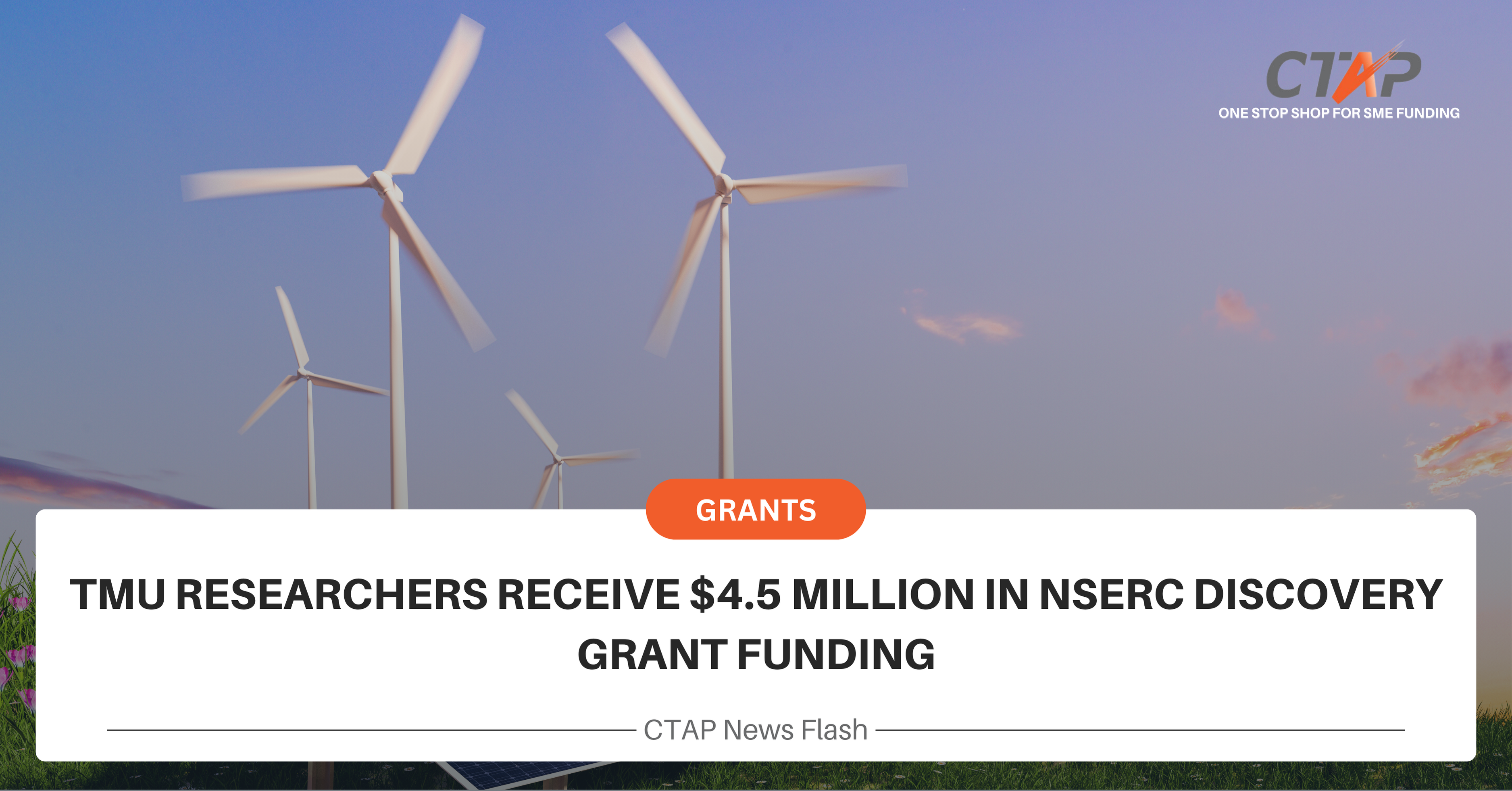

Toronto Metropolitan University (TMU) has announced that 24 of its researchers have secured $4.5 million in funding from the Natural Sciences and Engineering Research Council of Canada (NSERC). The grants, awarded through NSERC’s Discovery Grants program and announced by the Government of Canada in June 2024, are set to boost research and innovation across TMU’s diverse academic disciplines. This funding supports initiatives in areas like advanced power systems, crowdsourced delivery models, and cutting-edge nanomanufacturing.

The $4.5 million in grants will support 22 researchers through five-year Discovery Grants. These grants provide stable, long-term funding, enabling the researchers to focus on critical scientific challenges. Five of the recipients were also awarded the Discovery Launch Supplement, a one-year extension designed to support early-career researchers as they establish themselves in their fields. Additionally, two TMU faculty members received NSERC Research Tools and Instruments (RTI) grants, providing them with state-of-the-art equipment to advance their research.
Steven N. Liss, TMU’s vice-president of research and innovation, praised the grant recipients: “Congratulations to all the researchers who have received this important funding. This support will drive innovative research with benefits for all Canadians, from deepening our understanding of the human brain to addressing biases in online search algorithms. These projects reflect TMU’s commitment to addressing critical societal challenges through rigorous research.”
The funded projects span a wide array of topics, showcasing the depth of TMU’s research capabilities. Here are some key projects receiving support:
The Discovery Launch Supplement, awarded to five early-career researchers, is a crucial initiative to help new scholars develop their research programs. By providing an additional year of funding, the supplement ensures that early-career researchers can build a strong foundation for their work, attract further funding, and make meaningful contributions to their fields.
Meanwhile, the RTI grants awarded to ChungHyuk Lee and Scott Tsai will enable the acquisition of advanced research equipment. Lee’s grant will be used to purchase a micro-X-ray fluorescence spectrometer, a tool essential for analyzing hydrogen fuel cells’ performance and degradation. This research could lead to longer-lasting, more efficient fuel cells, playing a role in the development of cleaner energy solutions. Tsai’s RTI grant will support the purchase of a 3D printer designed for biomanufacturing applications, such as creating drug delivery systems and cell models, potentially advancing research in pharmaceuticals and personalized medicine.
This funding from NSERC is part of Canada’s broader strategy to support research and innovation that drives economic and social progress. By supporting TMU’s researchers, the government aims to address pressing issues such as urban sustainability, energy transition, and technological advancement. These research projects are expected to contribute significantly to Canada’s goals of becoming a leader in clean energy, advanced manufacturing, and digital innovation.
TMU’s researchers are known for their interdisciplinary approach, collaborating across fields to solve complex problems. The Discovery Grant funding reinforces TMU’s role as a center for innovative research and a catalyst for positive change, ensuring that the benefits of these discoveries reach communities across Canada and beyond.
With the backing of this funding, TMU researchers are poised to make significant advances in their respective fields, ranging from neuroscience and data science to sustainable energy and urban development. As they dive into these projects, TMU’s research community continues to be a hub of innovation and creativity. The support from NSERC not only strengthens the university’s research capabilities but also empowers researchers to make discoveries that could transform industries and improve the quality of life for Canadians.